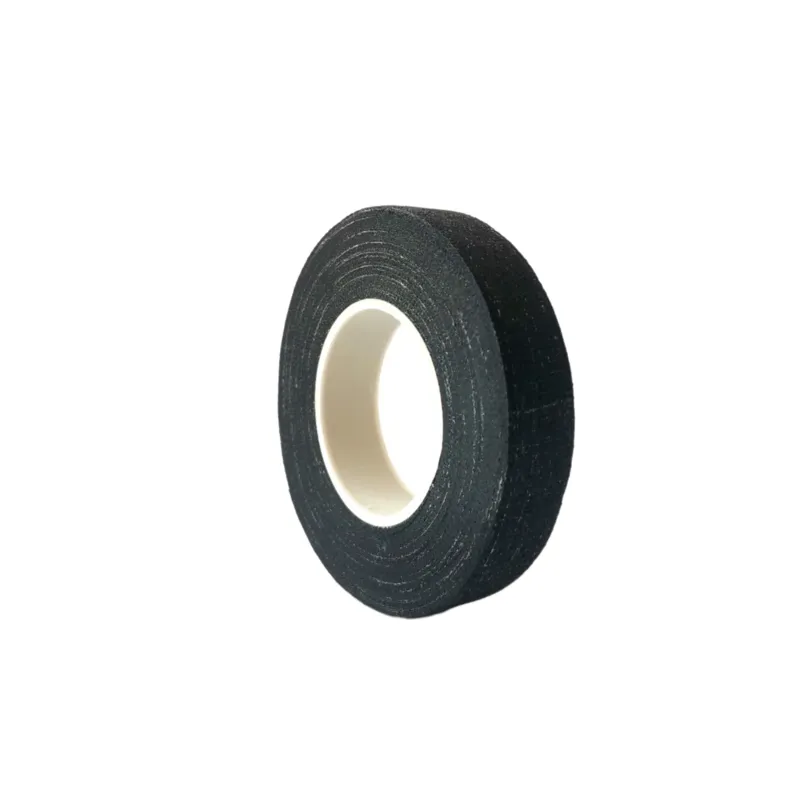The Importance of Electrical Insulating Tapes in Modern Applications
In the realm of electrical engineering and maintenance, safety and efficiency are paramount. Among the various tools and materials employed to ensure these factors, electrical insulating tapes stand out as a critical component. These specialized tapes are designed to insulate electrical wires and other conductive materials, providing protection against short circuits, electrical leakage, and other hazardous situations. This article explores the types, applications, and benefits of electrical insulating tapes.
Electrical insulating tapes are typically made from materials that possess excellent insulating properties. The most common materials used include PVC (polyvinyl chloride), rubber, and cloth, each having unique properties that suit different applications. PVC insulating tapes are widely used due to their versatility, ease of use, and resistance to moisture and chemicals. Rubber tapes, on the other hand, are often preferred for their superior flexibility and conformability, making them excellent for irregular surfaces. Cloth tapes, often backed with adhesive, provide durability and are commonly used in high-temperature applications.
One of the primary applications of electrical insulating tapes is in the electrical wiring of buildings and appliances. These tapes are used to wrap connections, ensuring that exposed wires do not come into contact with one another, which could lead to short circuits or electrical fires. By providing a secure and insulative barrier, these tapes not only protect the integrity of the electrical system but also enhance overall safety for individuals using the equipment.
Another significant application of insulating tapes is in the automotive industry. Vehicles contain numerous electrical systems that require reliable insulation. Electrical insulating tapes are used to secure wiring harnesses, protect sensitive components from moisture and dirt, and prevent abrasion. The automotive environment can be challenging due to temperature fluctuations and exposure to chemicals, making high-quality insulating tapes essential for the longevity of electrical systems in cars.
electrical insulating tapes

In addition to their use in construction and automotive applications, electrical insulating tapes are widely utilized in the electronics industry. As electronic devices become increasingly compact, the need for efficient space utilization is critical. Insulating tapes can provide a lightweight, flexible solution to insulate and bundle wires without adding significant bulk. Furthermore, with the rise of consumer electronics, the demand for reliable and durable insulation has never been higher, making these tapes indispensable in manufacturing processes.
The benefits of using electrical insulating tapes extend beyond mere insulation. They also provide mechanical protection, preventing damage to wires and cables from abrasion and external impacts. Moreover, many insulating tapes are designed to be flame retardant, adding an extra layer of safety in applications where fire risk is a concern. This makes them suitable for a wide range of environments, from residential buildings to industrial facilities.
Another aspect to consider is the ease of application. Most electrical insulating tapes can be applied quickly and without the need for specialized tools, allowing for efficient repairs and installations. This is particularly valuable in situations where time is of the essence, such as emergencies or equipment failures.
In conclusion, electrical insulating tapes play a crucial role in safeguarding electrical systems across various industries. Their ability to provide insulation, mechanical protection, and fire resistance makes them an essential tool for electrical engineers, technicians, and DIY enthusiasts alike. As technology continues to advance, the demand for innovative insulating solutions will only grow, reinforcing the significance of electrical insulating tapes in our everyday lives. Whether in our homes, cars, or electronic gadgets, these seemingly simple strips of tape are vital in ensuring safety and functionality in our increasingly electrified world.
-
XIANGFAN Rubber Tape-Ultimate Solutions for All Your Insulation NeedsNewsJun.24,2025
-
XIANGFAN Rubber Tape-Protection for Industrial and Residential ApplicationsNewsJun.24,2025
-
XIANGFAN Rubber Tape: Superior Safety and Sealing for Demanding EnvironmentsNewsJun.24,2025
-
XIANGFAN Rubber Tape: Reliable Solutions for Every Electrical ChallengeNewsJun.24,2025
-
XIANGFAN Electrical & Industrial Tape: Powering Reliability Across IndustriesNewsJun.24,2025
-
XIANGFAN Electrical & Industrial Tape: Excellence in Every ApplicationNewsJun.24,2025
